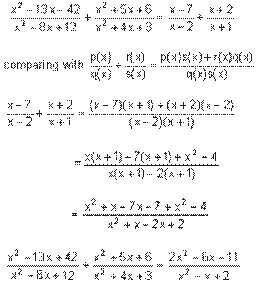In previous lessons, you learned how to add and subtract rational expressions. We will now extend these
concepts to slightly more difficult expressions.
For any two rational expressions p(x) /qx and r(x)/s(x) where q(x)≠ s(x), their sum is given by

and if q(x)=s(x)
that is, if the rational expressions are of the form p(x)/qx, r(x)/s(x) then

Example 1
Find the sum of 
2a2b≠100a3
We first find the LCM of the denominators.
2a2b=2∗a2∗b
100a3=22∗52∗a3
LCM=22∗52∗a3∗b
=100a3b

we get
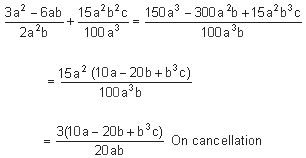
Example 2
Find the value of
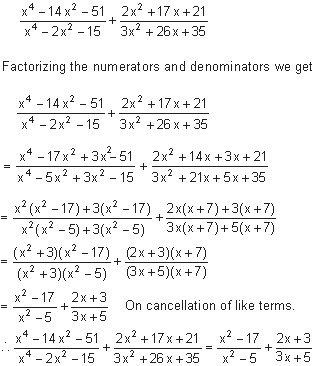
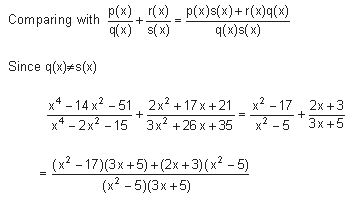
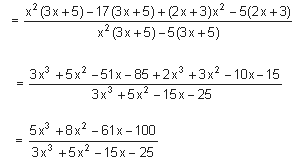
Example 3
Find the sum of (x+2)/(x-2) and (x-2)/(x+2)
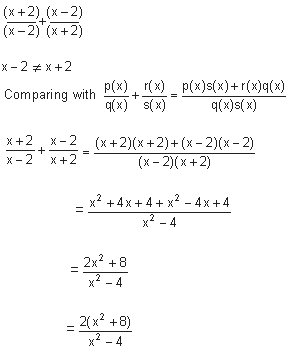
Try these questions
Find the values of
-

-

-

-

-

Answers to the questions
-
To solve 
Consider q(x)=17x
s(x)=51x
=3∗17x
∴ LCM of q(x),s(x)=51x


-
To solve 
Consider the denominators
p(x)=xy
s(x)=xy3
u(x)=x2y2
Irreducible factors x,y
Highest exponent of factors 2, 3
∴ LCM =x2y3
then
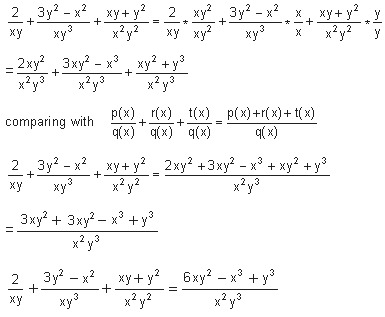
-
To solve 
a–x≠a+x
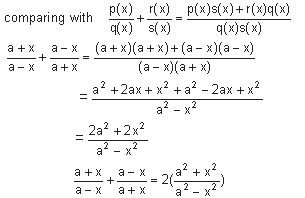
-
To solve 
Let q(x)=x2–y2
s(x) =(x2+xy)
Factorizing
q(x) =(x–y)(x+y)
s(x)=x(x+y)
Irreducible factors are x, x+y, x–y
Highest exponents of these factors are 1, 1, 1
LCM=x(x+y)(x–y)
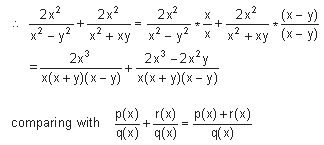
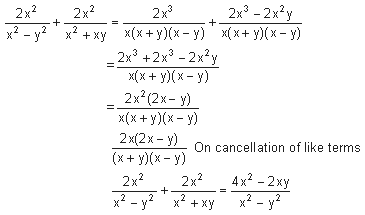
-
To solve 
Factorizing the numerators and denominators
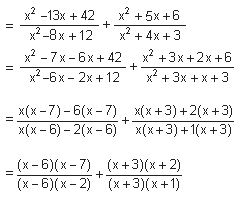
Canceling like terms in the numerator and denominator of each polynomial.
